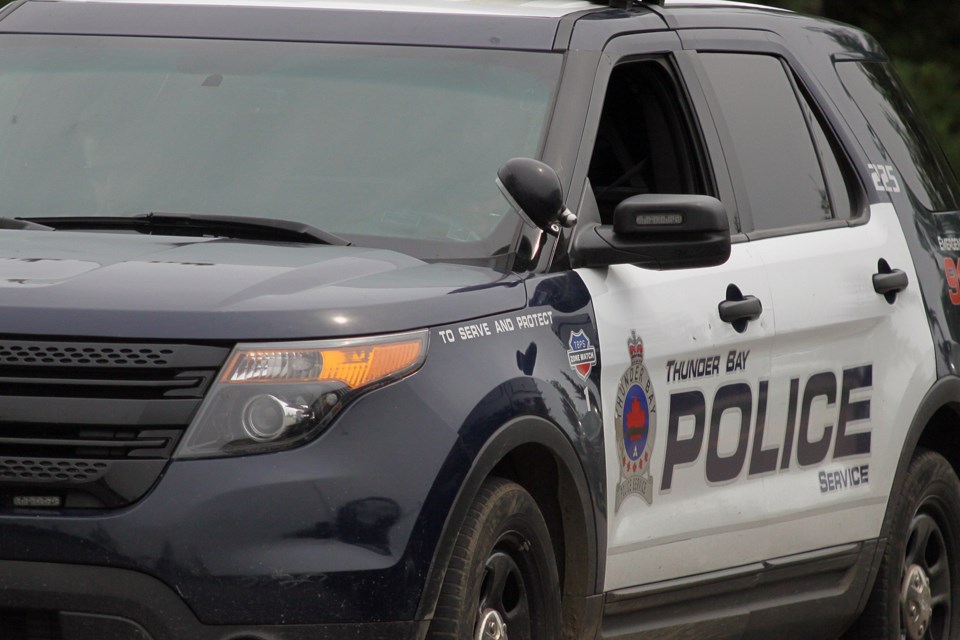THUNDER BAY — A new pilot project launched earlier this month by the Thunder Bay Police Service, CMHA Thunder Bay Branch and the Thunder Bay Regional Health Sciences Centre hopes to provide better and immediate services to individuals dealing with mental health crises in the community.
The details of the Integrated Mobile Police Assessment Crisis Team (IMPACT) were announced through a virtual news conference on Tuesday, Jan. 26.
The pilot project is an expansion of the Joint Mobile Crisis Response Team initiative which launched in June 2018.
“The goal of the pilot is to reduce police time in the emergency department, divert individuals from having to attend the emergency department while providing supports for individuals in the community,” Insp. Derek West of the Thunder Bay Police Service said Tuesday.
The new initiative launched on Jan. 4 and has so far had encounters with 71 individuals. Of the 71 encounters, 33 people have been diverted from the emergency department already, West said.
The pilot team is comprised of one police officer and one crisis worker who will work together to respond to all mental health-related calls for service that the police service receives or are referred to on a 24-hour, seven-day-a-week basis.
Jennifer Hyslop, CEO of CMHA Thunder Bay Branch said during Tuesday’s news conference the pilot program will help reduce unnecessary encounters with law enforcement and unnecessary emergency department visits for individuals.
“As we know provincially and in our community, police should not be the first responders to a mental health crisis,” Hyslop said. “If we look at the evidence in Thunder Bay and all communities across Ontario we have had to over-rely on police managing mental health issues.”
Lisa Beck, director of Trauma, Emergency Department and Critical Care at the Thunder Bay Regional Health Sciences Centre said if an emergency department visit is required, the IMPACT team will support the individual at the hospital as well.
The pilot program is different from the Joint Mobile Crisis Response Team in the sense that both the police officer and crisis worker respond to calls together.
“In the past there were many instances where the crisis worker arrives separately from the officer,” Beck said, adding having both police and crisis staff responding in unison is a great improvement for the patient.
Another difference is the team will operate out of the police station. For the Joint Mobile Crisis Response Team, crisis staff were dispatched separately from the CMHA crisis office, Hyslop said.
“We designed the IMPACT team to be able to respond more quickly and swiftly and hopefully will demonstrate this model of care is maybe even more critical than the way we were running our joint mobile project before,” she said.
CMHA also plans to implement five safe beds at the end of February as another diversion pathway for individuals who need extra support but do not need to attend the hospital. The IMPACT team will have direct access to these beds where individuals can be stabilized and stay up to 30 days.
Due to COVID-19 and finalizing staff members, there has been difficulty opening the beds, Hyslop said, but expects everything to be in place for the end of next month.
All police officers and crisis workers in the program participated in crisis intervention training, West said.
An analysis of the Joint Mobile Crisis Response Team which will continue to operate its two-person crisis response team seven days a week from 2 p.m. to 2 a.m. found that there were significant barriers and not enough coverage for mental health calls within a 12 hour period, Hyslop said.
Beck added the city’s emergency department was receiving patients with mental health concerns during all times of the day and night.
Hyslop said she expects to see more interactions regarding mental health in the community with project IMPACT.
“These numbers we have seen in the first few weeks are higher than what we expected,” she said. “With this new model, we are going to see interaction with individuals go up significantly.”
Currently, there are four full-time positions for crisis staff filled. The CMHA is currently recruiting for two part-time crisis workers' positions to be filled.
The project is scheduled to last a year.
